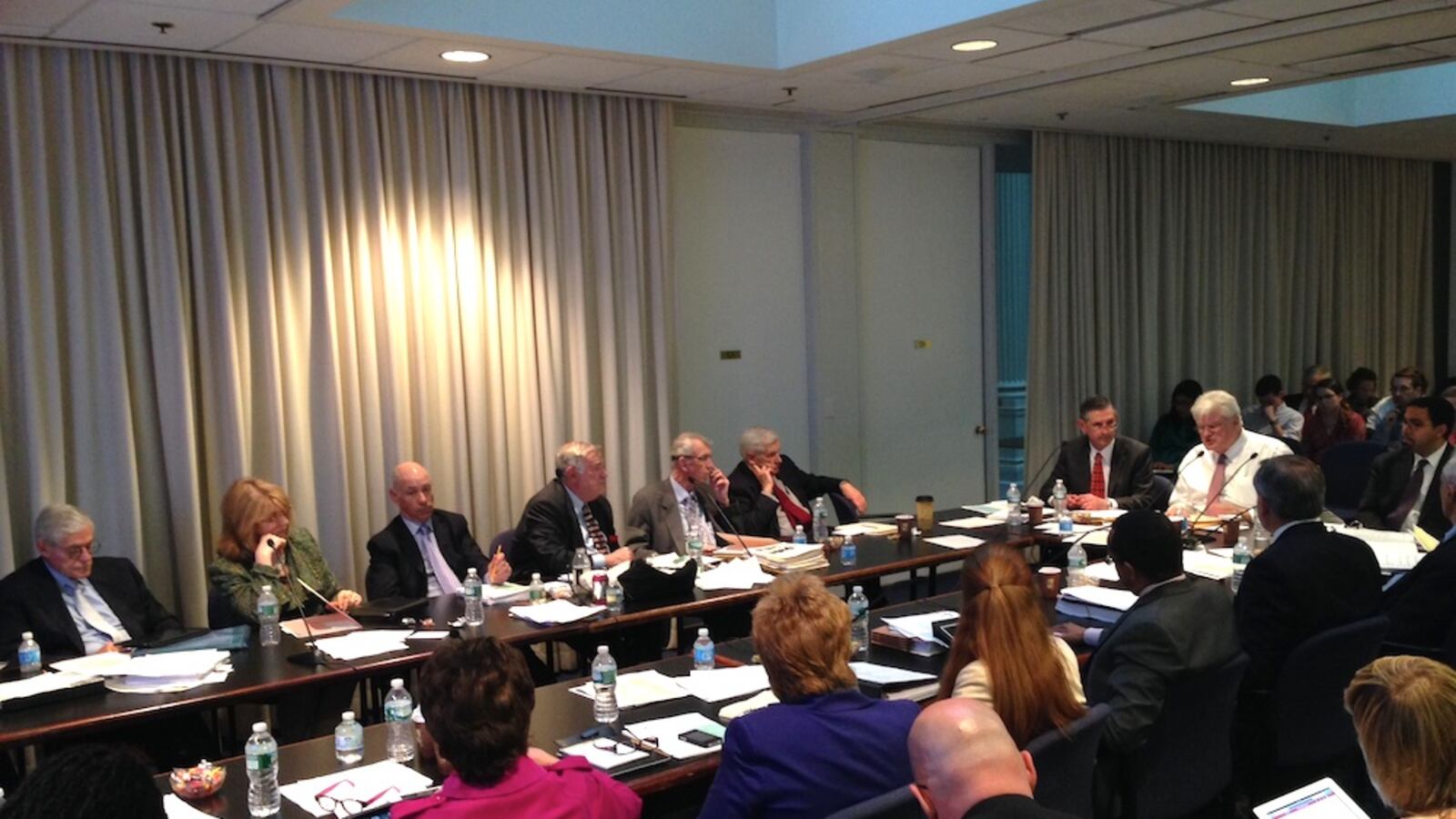Education officials blasted a state budget deal that green-lit hundreds of millions of dollars for a new pre-kindergarten funding program, but which they said included few safeguards to ensure money will be properly spent.
New legislation requires the State Education Department to distribute $340 million in new funding allocated for pre-K programs, most of which is for Mayor Bill de Blasio’s signature pre-K expansion plans. But officials said they lack capacity to handle the extra work, mostly because the department received no new money for the job.
“We’re going to make a $340 million investment this year and you don’t need administrative money?” said Regent James Tallon, who chairs the Board of Regents state aid subcommittee. “Come on. That’s not real.”
As a result, New York City might have to handle much of its own oversight, raising new questions about whether the de Blasio administration can smoothly implement plans to add 30,000 full-day pre-K seats before the start of the next school year.
“New York City has ramped up capacity in order to do that, but this is a very large undertaking in a very complicated sector,” said State Education Commissioner John King.
The comments came on Monday morning in Albany at a Board of Regents meeting, the first since lawmakers passed a state budget that allocated $300 million to New York City for pre-K programs and $40 million for other school districts. Chancellor Merryl Tisch said that the department’s lawyers and top education officials have spent weeks pouring over pre-K legislation enacted in the budget, “day and night,” but lots of questions remained unclear.
“Please forgive us if we don’t have answers yet,” Ken Slentz, the deputy commissioner in charge of pre-K education policies, said as the discussion got underway
Despite the uncertainty, the de Blasio administration is plowing ahead with plans to provide over 53,000 full-day seats before the start of the next school year—more than double last year’s total. Tisch said she was concerned the rapid expansion could affect the quality of pre-K programs, which researchers say is most important in early education.
“I just want to remind everyone that if this is not driven by quality that would be tragic,” Tisch told reporters after the meeting.
In response to those concerns, city officials said they’ve been on a staffing spree to build their pre-K implementation team, hiring six people for student recruitment and lining up retired educators to review program applications. More hires are expected in coming months, a spokeswoman said.
“Through the allocation of additional staff and resources, the City is ensuring an effective implementation of universal pre-K that provides a high quality education to four-year-olds across the City,” the spokeswoman, Devora Kaye, said in a statement.
Expanding pre-K was de Blasio’s top campaign pledge and it’s been a singular focus since he took office in January. State lawmakers rejected de Blasio’s bid to fund the expansion through a local income tax, but they allotted most of what he wanted in the state budget.
The state already administers pre-K funds through three existing programs, but lawmakers created a brand new program to disburse the new money. That includes a new application that requires districts to submit all their pre-K providers, along with details about how each program meets standards around teacher certification, curriculum, facilities, and others.
The state also has to establish consistent standards for bi-annual inspections that each program is required to receive. Officials said that will be a challenge since already at least five local and statewide government agencies oversee some kind of pre-K program that could receive new funds.
The new process could also = lot of new burdens on districts outside of New York City that also that want pre-K, and Regents questioned whether any would go through that trouble before their budgets are due next month.
Officials hedged their criticism by first saying they were heartened to see so much new funding dedicated to a program that Regents had long advocated for. But they questioned what lawmakers were thinking as they devised how the new program would be funded.
“To my [Regents] colleagues, I simply say, the answer to every question is ‘that’s the way they wrote it,'” said Tallon, a former Assembly member, referring to legislation that he said was likely written in the final hours of budget negotiations.


